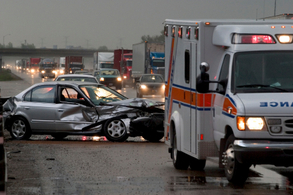
1. DO: Allow medical professionals to treat you and, if necessary take you to the hospital. It is very important to assess and treat your car accident injuries from the beginning.
2. DON'T: Speak directly with the insurance company. It is the adjuster’s job to try to minimize any accident settlement. They will try to use conversations against you to reduce the value of your personal injury claim.
3. DO: Follow up with all medical treatments and recommendations, including medications, physical therapy, chiropractic care, and other care as directed by your treating physicians.
4. DON'T: Make statements regarding the accident, especially comments that you may have contributed to the accident. North Carolina is one of few states with a contributory negligence tort system. If they can prove you had ANY amount of fault, you may recover NOTHING.
5. DO: Keep records, including accident reports, photographs of injuries and property damage, and medical records. Provide all documentation to your personal injury attorney.
6. DON'T: Sign ANYTHING that is given to you by an insurance company without consulting with your personal injury attorney. There is no reason to provide the insurer with any waiver or authorization.
7. DO: Keep a daily journal of your injuries, including pain you experience on a regular basis or which occurs while conducting normal day-to-day activities. If your injuries make it difficult or prevent you from keeping your home, preparing meals, or caring for your family, keep note of that as well. The impact of the accident on your daily life will affect your final settlement.
8. DON'T: Miss any doctor’s appointments, treatments, prescription regimens or follow up care. If you must miss an appointment, make sure to have a good reason, and have your doctor note that reason in your file. Failing to keep appointments and follow through with treatment indicates to adjusters and juries alike that your injuries are less severe and your medical expenses are not reasonable.
9. DO: Use medical payments coverage if you have it. It will help you pay your medical bills while your claims are pending. It will not be repaid upon settlement and it will not impact your premiums.
10. DON'T: Be in a hurry to settle your case. It takes time to properly prepare a personal injury claim. Let your attorney do their job.
2. DON'T: Speak directly with the insurance company. It is the adjuster’s job to try to minimize any accident settlement. They will try to use conversations against you to reduce the value of your personal injury claim.
3. DO: Follow up with all medical treatments and recommendations, including medications, physical therapy, chiropractic care, and other care as directed by your treating physicians.
4. DON'T: Make statements regarding the accident, especially comments that you may have contributed to the accident. North Carolina is one of few states with a contributory negligence tort system. If they can prove you had ANY amount of fault, you may recover NOTHING.
5. DO: Keep records, including accident reports, photographs of injuries and property damage, and medical records. Provide all documentation to your personal injury attorney.
6. DON'T: Sign ANYTHING that is given to you by an insurance company without consulting with your personal injury attorney. There is no reason to provide the insurer with any waiver or authorization.
7. DO: Keep a daily journal of your injuries, including pain you experience on a regular basis or which occurs while conducting normal day-to-day activities. If your injuries make it difficult or prevent you from keeping your home, preparing meals, or caring for your family, keep note of that as well. The impact of the accident on your daily life will affect your final settlement.
8. DON'T: Miss any doctor’s appointments, treatments, prescription regimens or follow up care. If you must miss an appointment, make sure to have a good reason, and have your doctor note that reason in your file. Failing to keep appointments and follow through with treatment indicates to adjusters and juries alike that your injuries are less severe and your medical expenses are not reasonable.
9. DO: Use medical payments coverage if you have it. It will help you pay your medical bills while your claims are pending. It will not be repaid upon settlement and it will not impact your premiums.
10. DON'T: Be in a hurry to settle your case. It takes time to properly prepare a personal injury claim. Let your attorney do their job.
 RSS Feed
RSS Feed
